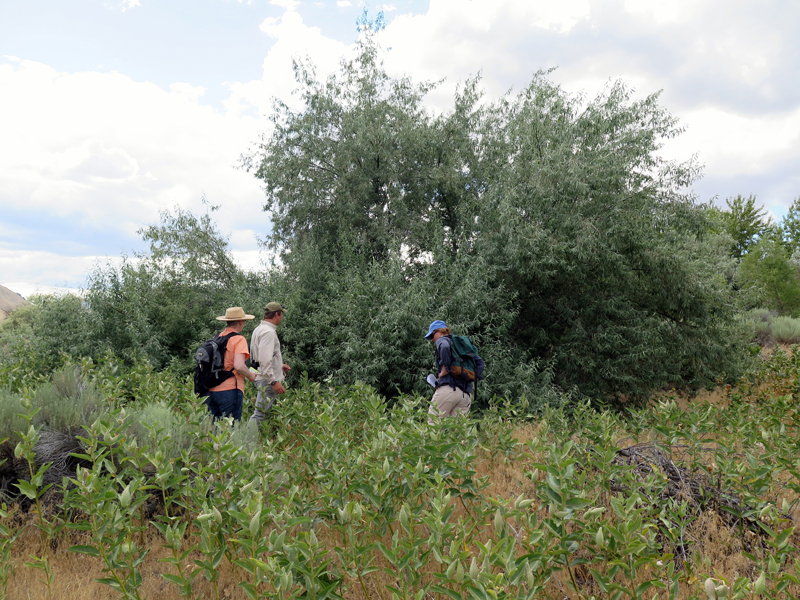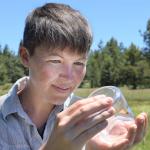The Xerces Society recently held two workshops in Washington and Idaho to train regional land managers, including staff from state fish and wildlife agencies and the USDA Natural Resources Conservation Service (NRCS), in surveying for monarchs and milkweed in western states and learning about conservation of the western monarch.
The workshops are a part of the Western Monarch Conservation Campaign, with support from Monarch Joint Venture, the Oregon Zoo, Washington Department of Fish and Wildlife (WDFW), and Idaho Department of Fish and Game. The two workshops held this year were focused on informing land managers about monarch and milkweed biology, conservation status of monarchs, and current research and habitat management efforts in the west, as well as to train biologists and other staff to conduct surveys.
In Washington, 22 attendees participated in a workshop led by Candace Fallon of the Xerces Society, Ann Potter from the WDFW, and David James, an Associate Professor from Washington State University. While most attendees were WDFW staff, some enthusiastic citizen scientists were also in attendance.
The field portion of the workshop was held at WDFW’s Lower Crab Creek State Wildlife Area, a milkweed-rich site that supports large stands of showy milkweed (Asclepias speciosa) and summer-visiting monarch butterflies. Attendees searched for different life stages of monarchs and discussed survey tactics.

On July 14th a similar workshop was held in Idaho led by Emma Pelton of the Xerces Society, Beth Waterbury of the Idaho Department of Fish and Game, and Dusty Perkins, an Assistant Professor at the College of Western Idaho. The workshop took place at the Deer Flat National Wildlife Refuge. The 26 participants included staff from the IDFG, NRCS, Idaho Department of Transportation, Idaho State Parks, and U.S. Fish and Wildlife Service. Presentations by James Eller of NRCS and Andrew Mackey of IDFG discussed incentive programs for private landowners to incorporate pollinator-friendly practices into their land management. The fieldwork portion of the workshop included searching for monarch eggs and caterpillars, identifying native milkweed species, and tagging 2 adult monarchs.
Additional workshops for land managers will be held this summer in California at the Sacramento National Wildlife Refuge in late July and in Nevada at the Stillwater National Wildlife Refuge in mid-August.
Workshops in 2017 will be focused on training citizen scientists in using a new citizen science tool, the Western Monarch Milkweed Mapper, to be unveiled later this year. These workshops are part of a State Wildlife Grant-supported project to better understand where milkweeds and monarchs occur in the west and what areas are most important for monarch breeding.




